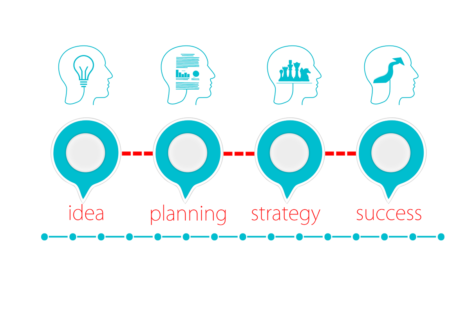(Exploring Your Mind) Are you the type of person who strives for perfection in every aspect of their life? If the answer is “yes”, you’re in for a life of suffering and frustration. Instead of perfection, aim for excellence. Try to outdoo yourself, without comparing yourself to anyone.
Related You’re Responsible for Yourself and that Makes You Free
by Staff Writer, September 13th, 2020
If you’ve ever thought about the meaning of excellence, there’s a crucial detail you should always remember: excellence doesn’t mean reaching the pinnacle of success. It isn’t about being better than other people or never making mistakes. In fact, a popular idea in the field of personal growth is that, if you strive for excellence, you’ll never lose your motivation. If you set your sights on perfection, however, you doom yourself to suffering.
Here’s an example you can probably relate to. You’ve probably noticed how educational centers and training courses often state that their goal is to help their students stand out from the crowd. The idea that you should be better than everyone else (in almost any discipline) dominates our society.
Thus, in this attempt to raise a child to be the next Stephen Hawking or Marie Curie, you’re actually setting them on a difficult path of anxiety, disappointment, and frustration. When someone tries to be perfect, failure and mistakes are devastating and painful. Striving for perfection is ultimately a recipe for disaster.
On the other hand, if you aim for excellence, you’ll be motivated and ready to overcome anything. When you aim for excellence, you understand that you can learn from your mistakes. On this path, failure is just another opportunity to improve. Let’s delve deeper into this.

Excellence and why you should aspire to achieve it
There’s an emerging field in psychology called the psychology of excellence. It aspires to gain an in-depth understanding of the processes through which people achieve happiness and professional fulfillment.
In order to understand it better, here’s an example. A common phenomenon is that many talented children who develop their skills during their youth end up abandoning their practice as adults. Musicians, gymnasts, artists, dancers… Why would people with so much potential, mastery, and skills stop doing the activity that made them unique?
The answer is simple: we often focus on talent without developing excellence. In other words, people usually think that, if someone is good at something, it’s because they’ve been blessed. You either have talent or you won’t amount to anything.
This is very far from the truth. If you truly want to be good at something, you need so much more than just natural talent. In fact, adopting good habits, being committed and willing to overcome challenges, working hard, and motivating yourself to reach a goal define excellence.
Child prodigies rarely become successful or happy adults. This occurs because their parents or caregivers neglect important aspects such as self-esteem, emotional management, or frustration tolerance. Thus, the psychology of excellence tries to help people acquire the necessary skills to achieve their goals. Not the goal of perfection, but of self-actualization and happiness.
These are the skills you need to strive for excellence:
Commitment
You can’t strive for excellence if you don’t commit to yourself and your goal. That involves perseverance, the courage to leave your comfort zone, and the ability to take responsibility for yourself in the process, understanding that challenges will arise. In other words, no one else can do it for you.
Resilience
We know that the concept of “resilience” is very popular right now. Nevertheless, it’s important in the pursuit of excellence. Resilience helps you get up time and time again, no matter how many times you fail or how many mistakes you make.
If you want to know what excellence is, keep this particular skill in mind. Resilience is what’ll keep you going after you mess up and be ready for new challenges.
Practice, practice, practice
If you want to master any discipline, practice is absolutely essential. You have to work hard and focus on getting better. Your goal must be to outdo yourself. Focus inward and don’t worry about what everyone else is doing. At the end of the day, no one is born being the best at something. It’s all a matter of practice and focus.
What’s excellence? Here’s another factor that feeds and motivates it: the ability to reflect on your own performance. If you can’t monitor your progress, you’ll never achieve anything. You need to be aware of your own mistakes and be aware that you’ll need to change tactics at times.
People who listen, reflect, and have a critical eye will continue to grow and develop.
Self-confidence
People with natural talent tend to suffer from something called “impostor syndrome“. In other words, they think they’re frauds and no longer believe in their abilities. Thus, without self-confidence, you’ll have no chance of achieving anything or being happy.
This is related to self-esteem, which is a wonderful psychological muscle that allows you to be optimistic, resilient, and sure of yourself.

Transcendence
Martin Seligman argued that transcendence is essential for a human to build their happiness. But what does that term mean, exactly?
It refers to the ability to find meaning in what you’re doing and who you are that goes beyond the physical and tangible. It’s knowing that you never stop developing. There’s always something more to achieve, something else that can motivate you and inspire your dreams and hopes.
Transcending means going beyond the ordinary to achieve the extraordinary. If you achieve transcendence, you’ll be happy with yourself and have no need to compare yourself to others.
In conclusion, no matter what your goal, passions, or desires are, stop trying to be perfect. Instead, strive for excellence.
Stillness in the Storm Editor: Why did we post this?
The news is important to all people because it is where we come to know new things about the world, which leads to the development of more life goals that lead to life wisdom. The news also serves as a social connection tool, as we tend to relate to those who know about and believe the things we do. With the power of an open truth-seeking mind in hand, the individual can grow wise and the collective can prosper.
– Justin
Not sure how to make sense of this? Want to learn how to discern like a pro? Read this essential guide to discernment, analysis of claims, and understanding the truth in a world of deception: 4 Key Steps of Discernment – Advanced Truth-Seeking Tools.
Stillness in the Storm Editor’s note: Did you find a spelling error or grammatical mistake? Send an email to [email protected], with the error and suggested correction, along with the headline and url. Do you think this article needs an update? Or do you just have some feedback? Send us an email at [email protected]. Thank you for reading.
Source:
https://exploringyourmind.com/strive-for-excellence-not-perfection/

Leave a Reply